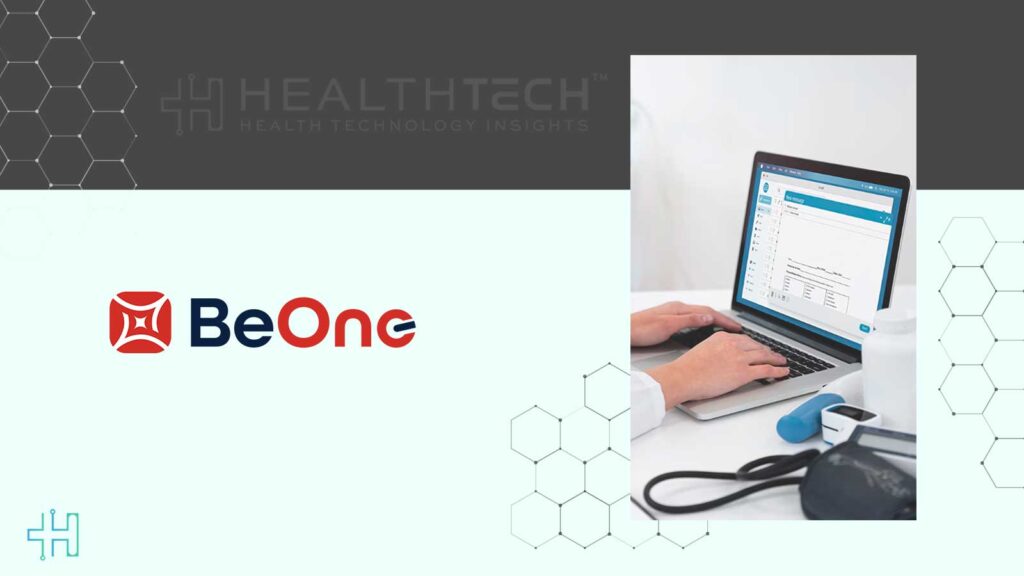Preliminary results highlight anti-tumor activity and favorable safety profiles of both B7-H4-targeting ADC and CDK2 inhibitor
BeOne Medicines Ltd. , a global oncology company, announced new clinical data from its emerging breast cancer pipeline at the American Society of Clinical Oncology (ASCO) Annual Meeting in Chicago. Poster presentations feature preliminary results of the dose escalation studies of two investigational molecules: BG-C9074, a novel B7-H4-targeting antibody-drug conjugate (ADC) in patients with advanced solid tumors, including breast cancer, and BG-68501, a cyclin-dependent kinase-2 inhibitor (CDK2i), in HR+/HER2- breast cancer patients with prior CDK4/6i exposure.
“Presenting the first clinical data for two novel breast cancer candidates at ASCO 2025 marks a pivotal moment for BeOne,” said Mark Lanasa, M.D., Ph.D., Chief Medical Officer, Solid Tumors at BeOne. “These early results highlight the strong potential of our B7-H4-targeting ADC and CDK2 inhibitor to address critical gaps in breast cancer treatment. Alongside our advancing CDK4 inhibitor, they represent just the beginning of a pipeline built on targeted, biology-driven innovation. As we debut our new identity as BeOne, this milestone reflects the momentum behind our science and our commitment to delivering impactful therapies to cancer patients worldwide.”
BeOne is advancing a robust pipeline of differentiated investigational medicines for breast cancer that may both effectively combat the disease and potentially improve quality of life for patients receiving treatment.
BG-C9074, a B7-H4-targeting ADC (Abstract #3033)
BeOne presented initial results of the ongoing first-in-human, Phase 1a dose escalation study of BG-C9074 monotherapy in 78 patients with advanced solid tumors, of which more than a quarter were breast cancer patients. BG-C9074, an investigational topoisomerase I inhibitor ADC that targets the B7-H4 protein, which is broadly expressed in breast and gynecologic cancers, is designed with an innovative drug linker to deliver a potent cancer-killing drug directly to the cancer cells.
With limited follow-up among the 56 efficacy-evaluable patients, preliminary clinical responses were observed at multiple dose levels across various tumor types without selection for B7-H4 expression in these heavily pretreated patients. Confirmed overall response rate (ORR) was 16.1% (9/56; 95% CI: 7.6%–28.3%), with 9 confirmed partial responses; unconfirmed ORR was 25.0% (14/56; 14.4%-38.4%) (n=14 partial responses). Confirmed disease control rate (DCR) was 73.2% (59.7%-84.2%) and confirmed clinical benefit rate (CBR) was 17.9% (8.9%-30.4%). Pharmacokinetics (PK) were observed to be approximately dose-proportional across dose levels.
Health Technology Insights: Nurse Training Provider Enhances Mental Health Support
BG-C9074 showed a manageable safety and tolerability profile in patients with B7-H4 advanced solid tumors, including breast cancer. There were 5 dose-limiting toxicities (DLTs) reported among 3 dose levels, all related to treatment: grade 3 fatigue (n=1); grade 3 febrile neutropenia (n=2); and grade 4 platelet count decreased (n=2). The most common treatment-emergent adverse events (TEAEs) were nausea, fatigue, and neutropenia*. The most common grade ≥3 TEAEs were neutropenia and thrombocytopenia†. There were no TEAEs leading to treatment discontinuation or death.
These data support the continued development of BG-C9074 in patients with advanced solid tumors. (NCT06233942)
BG-68501, a CDK2 inhibitor (Abstract# 3115)
Dose-escalation data from the first-in-human, Phase 1a study of a novel CDK2 inhibitor, BG-68501, were presented as a poster today. BG-68501 is designed to address elevated CDK2 activity as well as cyclin E1-driven upregulation, two key resistance mechanisms that often limit the effectiveness of CDK4/6 inhibitors in treating HR+/HER2- breast cancer. CDK inhibitors target checkpoint proteins that control cell division to stop the growth of cancer cells.
A total of 57 enrolled patients with advanced solid tumors, including 19 patients with HR+/HER2- metastatic breast cancer, received BG-68501 as monotherapy or in combination with fulvestrant in escalating dose cohorts (all received prior CDK4/6i).
Of the 37 efficacy-evaluable patients (all with monotherapy), unconfirmed overall response rate (ORR) was 5.4% (2/37; 95% CI: 0.7%–18.2%). Two extensively pretreated patients (5.4%) experienced unconfirmed partial response (PR), 15 patients (40.5%) had stable disease (SD), 15 patients (40.5%) had progressive disease (PD), and 5 patients (13.5%) were not evaluable/not assessed. Of the 2 patients with PR, both were breast cancer patients, and one was ongoing with treatment at the time of data cutoff, while the other had discontinued treatment. Unconfirmed clinical benefit rate (CBR) was 8.1% (3/37; 95% CI: 1.7%-21.9%) and unconfirmed disease control rate (DCR) was 45.9% (17/37; 95% CI: 29.5%-63.1%). BG-68501 demonstrated a linear PK profile consistent with preclinical data and signs of pharmacodynamic responses.
BG-68501 demonstrated a manageable safety and tolerability profile, with no DLTs observed to date during dose escalation. The most common TEAEs were vomiting, nausea, and fatigue, and TEAEs leading to treatment discontinuation occurred in 4 patients (7%) across all dose levels. There were no TEAEs leading to death.
The data support continued development of BG-68501 as a next-line option for tumors with CDK2 dependency.
Health Technology Insights: Omada Health Announces Launch of Initial Public Offering
To participate in our interviews, please write to our HealthTech Media Room at sudipto@intentamplify.com
Source – businesswire



